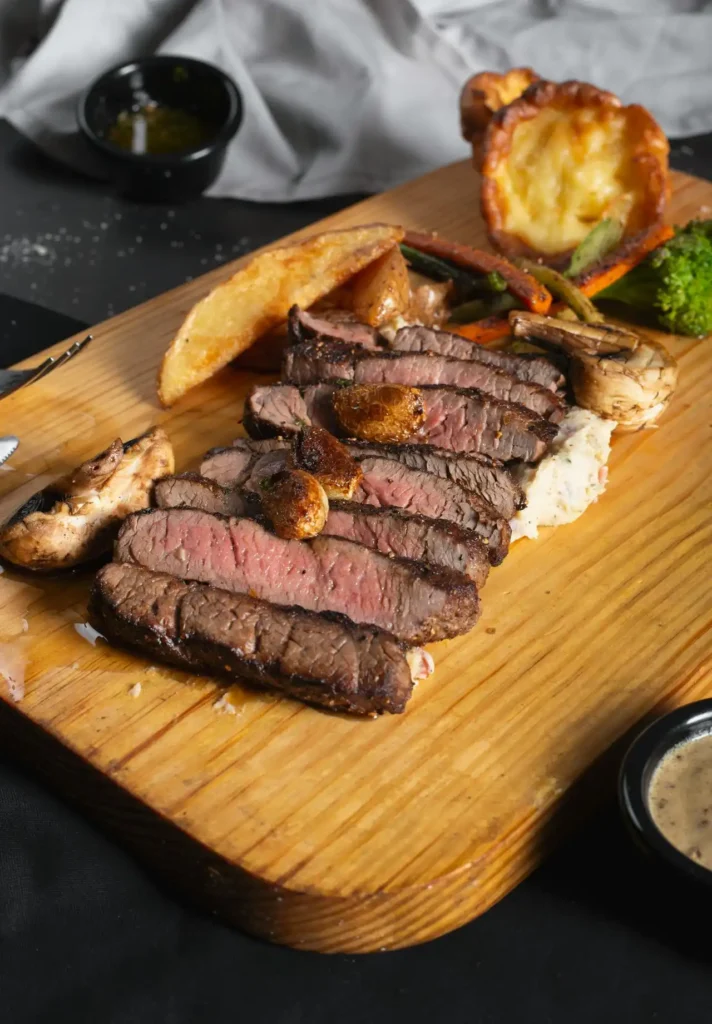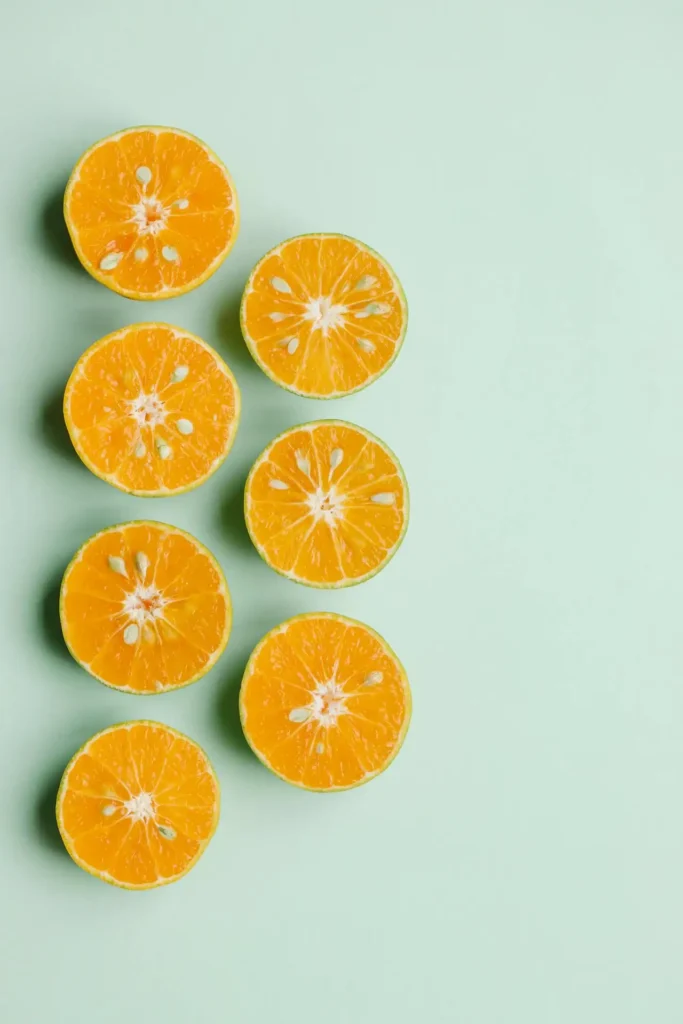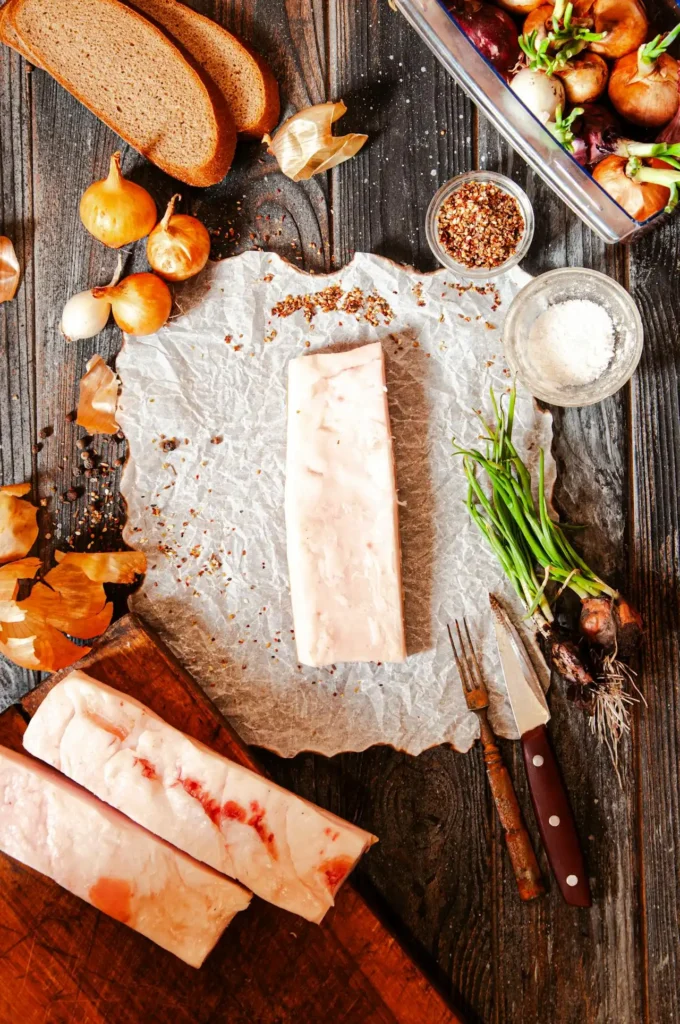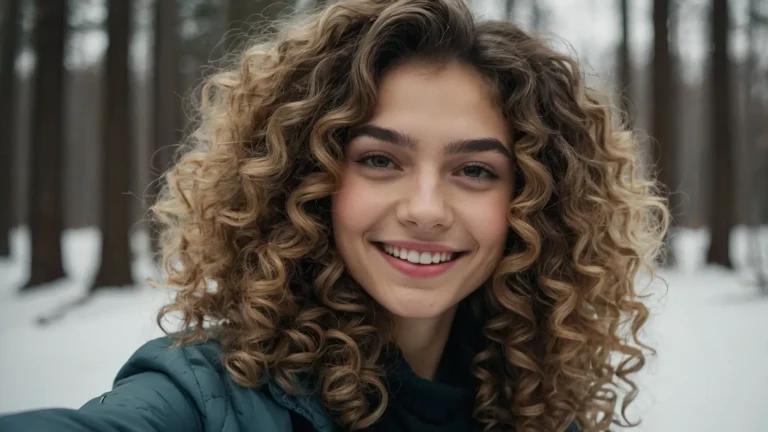Foods That Boost Hair Health From the Inside Out
You’ve probably tried countless hair products promising lustrous locks, but the secret to truly healthy hair starts on your plate.
What you eat directly impacts your hair’s strength, shine, and growth rate more than most people realize.
Transform your hair from the inside out by nourishing your body with the right nutrients.
Protein: The Building Block Your Hair Craves

Your hair consists of 95% protein, specifically a protein called keratin.
When you don’t consume enough protein, your body redirects available protein to essential organs, leaving your hair weak and brittle.
This prioritization system means your hair often shows the first signs of protein deficiency.
Eggs stand out as one of the most complete protein sources for hair health. They contain all nine essential amino acids your body needs to build strong hair strands.
The biotin in eggs works alongside protein to strengthen your hair shaft and improve overall texture.
Lean meats like chicken, turkey, and lean beef provide high-quality protein that your body easily absorbs.
These meats also contain iron, which helps carry oxygen to your hair follicles. When your follicles receive adequate oxygen, they function optimally and produce stronger, healthier hair.
Fish, particularly salmon, tuna, and mackerel, offer protein plus omega-3 fatty acids. This combination supports both hair structure and scalp health.
Plant-based options like quinoa, lentils, and chickpeas provide excellent protein alternatives for vegetarians and vegans.
Iron: Fueling Hair Growth at the Roots
Iron deficiency ranks as one of the most common causes of hair loss, especially in women.
Your hair follicles need iron to produce new hair cells effectively. Without adequate iron, your hair growth cycle slows down, and existing hair becomes thin and weak.
Spinach and other leafy greens pack impressive amounts of iron along with folate and vitamin C.
The vitamin C enhances iron absorption, making these vegetables particularly beneficial for hair health.
You can easily add spinach to smoothies, salads, or main dishes without significantly changing flavors.
Red meat provides hemi iron, which your body absorbs more readily than plant-based iron sources.
However, you don’t need large quantities – a palm-sized portion a few times per week supplies adequate iron for most people.
Balance red meat consumption with other iron sources for optimal health. Lentils, tofu, and pumpkin seeds offer excellent plant-based iron options.
Pair these foods with vitamin C-rich ingredients like bell peppers, tomatoes, or citrus fruits to maximize iron absorption.
This combination strategy helps vegetarians maintain healthy iron levels for strong hair growth.
Omega-3 Fatty Acids: Nourishing Your Scalp
Your scalp needs healthy fats to maintain proper moisture balance and reduce inflammation.
Omega-3 fatty acids create this ideal environment for hair growth while adding natural shine to your existing hair.
These essential fats also help regulate hormone levels that affect hair growth cycles.
Salmon leads the pack for omega-3 content, providing both EPA and DHA – the most beneficial forms of omega-3s.
Aim for two servings of fatty fish per week to support both hair and overall health. Wild-caught salmon typically contains higher omega-3 levels than farm-raised varieties.
Walnuts offer the highest omega-3 content among nuts, making them an excellent snack for hair health.
A small handful daily provides significant omega-3s plus protein, zinc, and vitamin E. You can add walnuts to oatmeal, yogurt, or salads for easy incorporation into your diet.
Flaxseeds and chia seeds contain ALA omega-3s, which your body converts to EPA and DHA in smaller amounts.
Grind flaxseeds before eating to improve nutrient absorption. Both seeds work well in smoothies, baked goods, or sprinkled over meals for added nutrition.
Biotin and B Vitamins: Supporting Hair Metabolism
B vitamins play crucial roles in hair health, with biotin (B7) receiving the most attention for its hair-strengthening properties.
These vitamins support the metabolic processes that create new hair cells and maintain healthy follicles. Deficiencies in B vitamins often manifest as hair thinning or slow growth.
Eggs provide biotin along with other B vitamins essential for hair health. The combination of nutrients in eggs makes them one of the most hair-friendly foods you can eat.
Cook eggs gently to preserve maximum nutrient content – avoid overcooking which can reduce biotin availability.
Avocados contain biotin, folate, and healthy fats that support hair growth and scalp health.
The monounsaturated fats in avocados help your body absorb fat-soluble vitamins more effectively. Add avocado to sandwiches, salads, or smoothies for a nutrient boost.
Sweet potatoes provide beta-carotene, which your body converts to vitamin A, plus several B vitamins.
Vitamin A helps produce sebum, your scalp’s natural oil that keeps hair moisturized. However, too much vitamin A can cause hair loss, so maintain moderate consumption of vitamin A-rich foods.
Sunflower seeds and almonds offer biotin, vitamin E, and healthy fats in convenient, portable packages.
These nuts and seeds make excellent snacks and can easily be added to meals for extra nutrition. Store them properly to maintain freshness and prevent rancidity.
Vitamin C: Enhancing Iron Absorption and Collagen Production

Vitamin C serves dual purposes for hair health: it enhances iron absorption and supports collagen production.
Collagen strengthens hair strands and improves elasticity, reducing breakage and split ends. This vitamin also acts as an antioxidant, protecting hair follicles from damage.
Citrus fruits like oranges, grapefruits, and lemons provide abundant vitamin C in delicious, refreshing packages.
Start your day with citrus fruit or add lemon juice to water for an easy vitamin C boost. The natural sugars in citrus fruits also provide quick energy for your body’s hair-building processes.
Bell peppers contain more vitamin C than citrus fruits, with red peppers leading the pack. These colorful vegetables add crunch and nutrition to salads, stir-fries, and snacks.
The combination of vitamin C and antioxidants in bell peppers supports both hair health and overall wellness.
Berries offer vitamin C plus anthocyanins and other antioxidants that protect hair follicles from oxidative stress.
Strawberries, blueberries, and blackberries all contribute to hair health while satisfying sweet cravings naturally. Add berries to yogurt, oatmeal, or smoothies for maximum benefit.
Broccoli and Brussels sprouts provide vitamin C along with other hair-supportive nutrients like folate and iron.
These cruciferous vegetables also contain compounds that may help regulate hormones affecting hair growth. Steam or lightly sauté these vegetables to preserve maximum vitamin content.
Zinc: Maintaining Hair Follicle Health
Zinc plays essential roles in hair tissue growth and repair while helping maintain the oil glands around hair follicles.
Zinc deficiency can cause hair loss, slow growth, and changes in hair texture. This mineral also supports protein synthesis, which is crucial for strong hair development.
Oysters contain more zinc per serving than any other food, making them incredibly beneficial for hair health.
If oysters aren’t your preference, other shellfish like crab and lobster also provide substantial zinc amounts.
These seafood options offer additional benefits through their protein and omega-3 content.
Pumpkin seeds provide plant-based zinc along with iron, magnesium, and healthy fats. A quarter-cup serving delivers significant zinc while making an easy snack or salad topping.
Roast pumpkin seeds with spices for a flavorful, hair-healthy treat. A small portion provides zinc while satisfying chocolate cravings in a hair-friendly way.
Chickpeas and other legumes offer zinc plus protein, iron, and fiber. These versatile ingredients work well in soups, salads, hummus, and main dishes.
The combination of nutrients in legumes supports overall health while specifically benefiting hair growth and strength.
Dark chocolate contains zinc along with iron and antioxidants that support hair health.
Choose chocolate with at least 70% cacao for maximum benefits and minimal added sugar.
Vitamin D: Supporting Hair Follicle Cycling
Vitamin D influences hair follicle cycling and may play a role in creating new hair follicles. Research shows connections between vitamin D deficiency and certain types of hair loss.
While sunlight provides the most vitamin D, several foods can help maintain adequate levels.
Fatty fish like salmon, mackerel, and sardines provide vitamin D along with protein and omega-3s.
These fish offer multiple hair-health benefits in single servings. Canned fish options provide convenience while maintaining most nutritional benefits.
Fortified foods like milk, cereals, and plant-based milk alternatives often contain added vitamin D.
Check labels to find fortified options that fit your dietary preferences. These foods help bridge the gap between natural vitamin D sources and your body’s needs.
Egg yolks contain modest amounts of vitamin D along with other hair-supporting nutrients.
Pastured eggs typically contain higher vitamin D levels than conventional eggs. Include whole eggs in your diet rather than just egg whites to maximize nutritional benefits.
Mushrooms, particularly UV-exposed varieties, provide plant-based vitamin D. Add mushrooms to omelets, salads, or main dishes for extra nutrition.
Portobello, maitake, and UV-treated mushrooms offer this essential nutrient for vegetarians and vegans.
Antioxidant-Rich Foods: Protecting Hair from Damage
Antioxidants protect hair follicles from oxidative stress caused by free radicals, environmental pollution, and UV radiation.
These protective compounds help maintain healthy hair growth cycles and prevent premature aging of hair follicles. A diet rich in antioxidants supports long-term hair health.
Blueberries rank among the highest antioxidant foods, providing anthocyanins that improve circulation to the scalp.
Better circulation delivers more nutrients to hair follicles, supporting optimal growth conditions. Fresh or frozen blueberries offer similar benefits and can be enjoyed year-round.
Green tea contains catechins and other antioxidants that may help reduce DHT, a hormone linked to hair loss.
Drinking green tea regularly provides antioxidant protection while potentially supporting hair retention. The caffeine in green tea may also stimulate hair follicles when applied topically.
Colorful vegetables like carrots, beets, and red cabbage provide various antioxidants that support overall health and hair vitality.
The diverse colors indicate different antioxidant compounds, so eating a rainbow of vegetables ensures comprehensive protection.
These vegetables also provide fiber, vitamins, and minerals essential for hair health.
Dark leafy greens like kale, Swiss chard, and arugula offer antioxidants plus iron, folate, and vitamin C.
These nutrient-dense vegetables support multiple aspects of hair health while providing few calories. Add greens to smoothies, salads, or sauté them as side dishes.
Hydration: The Foundation of Healthy Hair
Water makes up about 25% of a hair strand’s weight, making proper hydration essential for hair health.
Dehydration can lead to dry, brittle hair that breaks easily and lacks shine. Your hair follicles need adequate hydration to function optimally and produce healthy hair.
Aim for 8-10 glasses of water daily, adjusting for activity level, climate, and individual needs.
Pure water provides the best hydration, but herbal teas and water-rich foods also contribute to daily fluid intake.
Monitor your urine color as a hydration indicator – pale yellow suggests adequate hydration.
Water-rich foods like cucumbers, watermelon, and lettuce contribute to overall hydration while providing additional nutrients.
These foods offer variety in your hydration sources and can be especially helpful for people who struggle to drink enough plain water.
Coconut water provides natural electrolytes that support proper hydration at the cellular level.
The potassium and other minerals in coconut water help maintain fluid balance throughout your body, including in hair follicles. Choose unsweetened varieties for the healthiest option.
Complex Carbohydrates: Providing Energy for Hair Growth

Your hair follicles are among the most active cells in your body, requiring constant energy to produce new hair.
Complex carbohydrates provide steady energy that supports this continuous growth process. Simple sugars cause energy spikes and crashes that can disrupt hair growth cycles.
Whole grains like quinoa, brown rice, and oats provide B vitamins, iron, and zinc along with complex carbohydrates.
These nutrients work together to support hair health while providing sustained energy. Choose minimally processed grains for maximum nutritional benefit.
Sweet potatoes offer complex carbohydrates plus beta-carotene, vitamin C, and fiber. Bake, roast, or steam sweet potatoes to preserve maximum nutrients.
The steady energy release from sweet potatoes supports consistent hair growth while the vitamins nourish hair follicles directly.
Legumes provide complex carbohydrates along with protein, iron, and zinc – creating a complete hair-health package.
Black beans, lentils, and chickpeas offer versatility in meal planning while supporting strong, healthy hair growth. Soak dried legumes overnight to improve digestibility.
Timing and Meal Planning for Optimal Hair Health
Consistency in nutrition matters more for hair health than perfect individual meals. Plan meals that include hair-supportive nutrients regularly rather than sporadically.
Your hair reflects your nutritional status over months, not days, so maintaining steady nutrient intake supports long-term hair health.
Breakfast provides an opportunity to include protein, healthy fats, and vitamins that support hair health throughout the day.
Eggs with avocado, Greek yogurt with berries and nuts, or oatmeal with seeds create hair-healthy morning meals.
Starting the day with proper nutrition sets a positive tone for hair health. Avoid extreme dieting that can shock hair follicles and cause temporary hair loss.
Balanced meals that combine protein, healthy fats, and complex carbohydrates provide steady nutrients for hair growth.
This combination also helps maintain stable blood sugar levels, which supports consistent hair growth cycles.
Snacks offer additional opportunities to include hair-healthy nutrients between meals. Plan snacks in advance to avoid less nutritious options when hunger strikes.
Nuts, seeds, fruit, and yogurt make excellent choices that support hair health while satisfying hunger.
Conclusion
Nourishing your hair from within requires consistent intake of protein, vitamins, minerals, and healthy fats that support follicle function and hair strength naturally.







